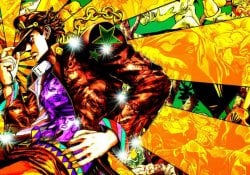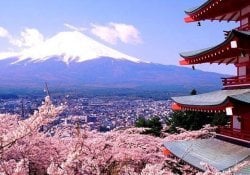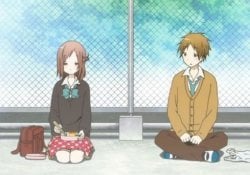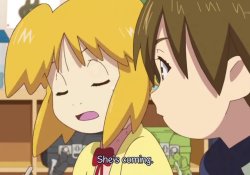Did you know that the greatest physicist of all time has been to Japan? That's right. Albert Einstein アルベルト・アインシュタイン (1879-1955), famous German physicist, creator of the theory of relativity and responsible for the development of several inventions and theories in the field of Science, visited Japan in the year 1922. The purpose of his trip was to hold conferences.
But, in addition to his important lectures and classes, the physicist left a legacy little known to most people: a text written on a piece of paper, whose content talks about a theme related to the area of psychology motivational.
A few years ago, it was discovered that during his stay in the land of the rising sun, Einstein wrote a note, the content of which is now taken as his “Theory of Happiness”, despite the fact that this was just a spontaneously written text, and that probably did not have that intention at its origin.
In addition, Einstein praised the Japanese innumerable, at the same time he heavily criticized the Chinese, a fact that generates controversy about his personality to this day.
In this article, we will know the details behind the visit to the East of one of the biggest names in world science of all time. We will also see a little of the Japanese vocabulary that is usually used in the context of the sciences.

Índice de Conteúdo
Ticket and tip
In Japan, tipping is not common.. Unlike the USA and Brazil, the act of giving a tip is extremely disliked by the Japanese, because it tends to be interpreted as an offense, as a way of showing superiority to the other. In a society that values humility and respect for etiquette rulesGiving someone "out" money is not acceptable.
Despite this, according to some sources, Einstein offered a tip to a Japanese man (actually this information is quite obscure and it is not known for sure if he actually tipped, if it was rejected or if he didn't have the money to give the tip. tip and thus had to write a note as a treat). But one thing caught a lot of attention in this story: Einstein decided to write a short text of only 17 words, with the following sayings: “A calm and modest life brings more happiness than the pursuit of success combined with constant restlessness.”
This contribution may have had little financial value for the employee who received it at that time, but the fact is that today this letter reaches millionaire values in auctions.
What did Einstein think of the Japanese?
In addition to his “Theory of Happiness”, issued by means of modest 17 words, Albert Einstein has already made some descriptions about what he thinks about the japanese people. During his stay in the country in 1922, Einstein took the opportunity to observe the culture and behavior of that people. From there, the German scientist developed, through observation and interaction, some subsidies to describe the Japanese people. Some of his speeches reflect on the fact that the Japanese fulfill their social functions and are impersonal subjects, proud of their people and their community traditions.
Finally, Einstein noticed in the Japanese a much greater sensitivity to the arts than to the sciences.
The physicist praised the country several times, while expressing harsh criticism of China and the Chinese people (many of whom were considered, by many people, as racist and xenophobic).
Einstein Manga
As it is customary for the Japanese to create manga about all kinds of things, it is not surprising that there is a manga about Albert Einstein.
You can purchase it on the amazon website, for this link.
The article is still halfway through, but we recommend also reading:
Vocabulary
- アインシュタイン (ainshutain) = Einstein.
- 物理 (ぶつり, butsuri) = Physics.
- メモ (memo) = Note, Notes.
- 科学者 (かがくしゃ, kagakusha) = Scientist.
- ドイツ (doitsu) = Germany.
- 理科 (りか, rika) = Science.
- ノベル賞 (のべるしょう, noberu shou) = Nobel Prize (won by Albert Einstein in 1921, a year before his trip to Japan).
- 物理学者 (ぶつりがくしゃ, butsuri gakusha) = Physical.
- 相対性理論 (そうたいせいりろん, soutai seiriron) = Theory of Relativity.

What's up? Did you like the article? So like, comment and share on social media!







